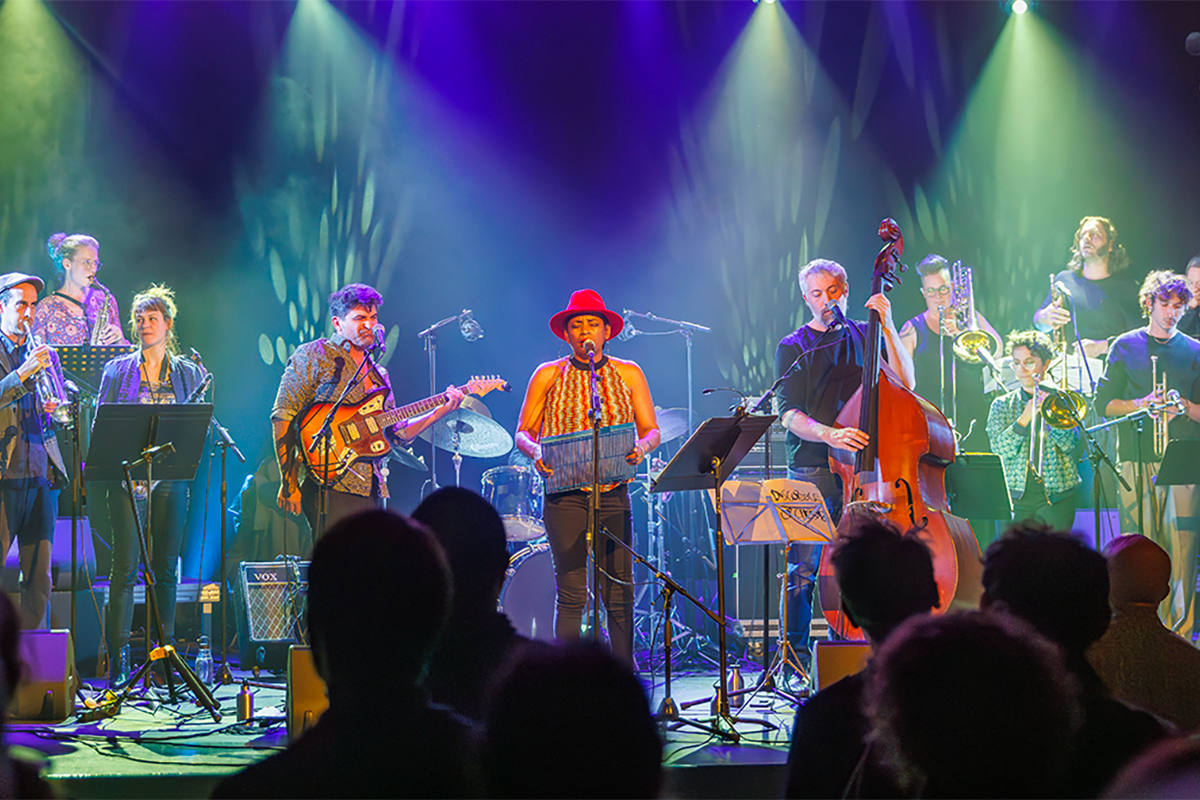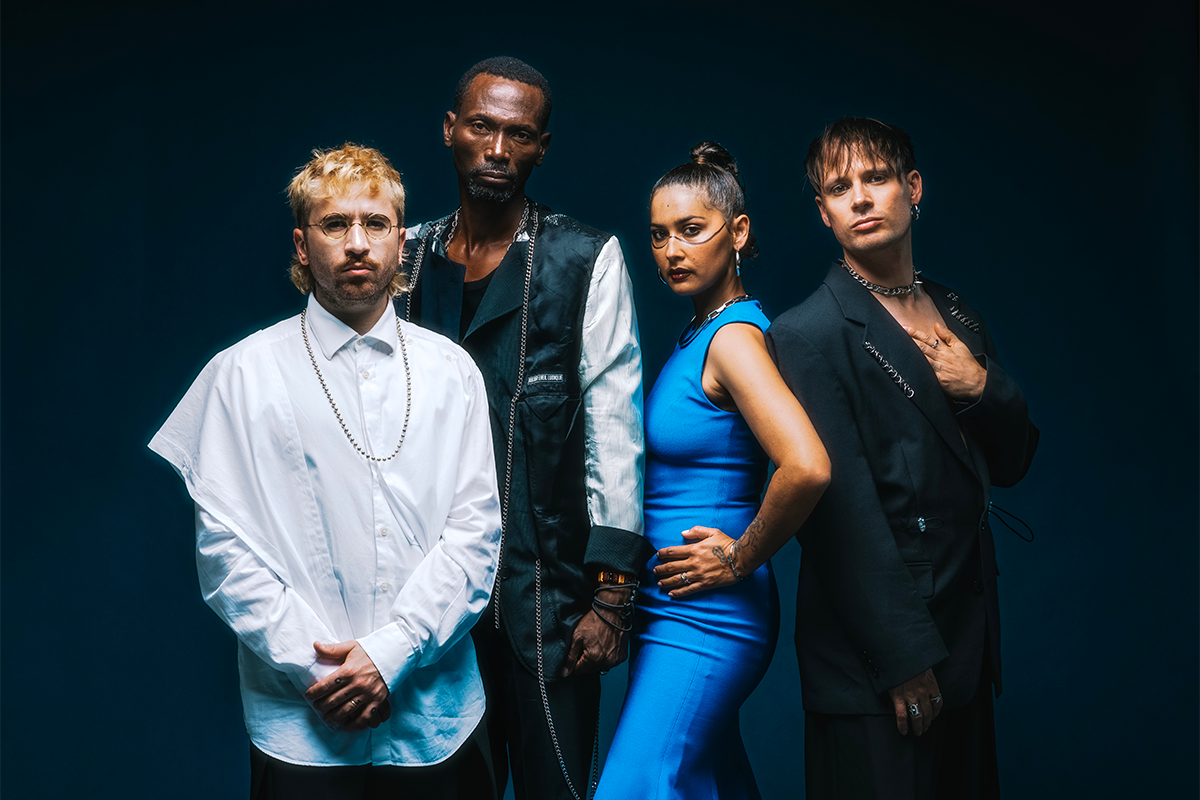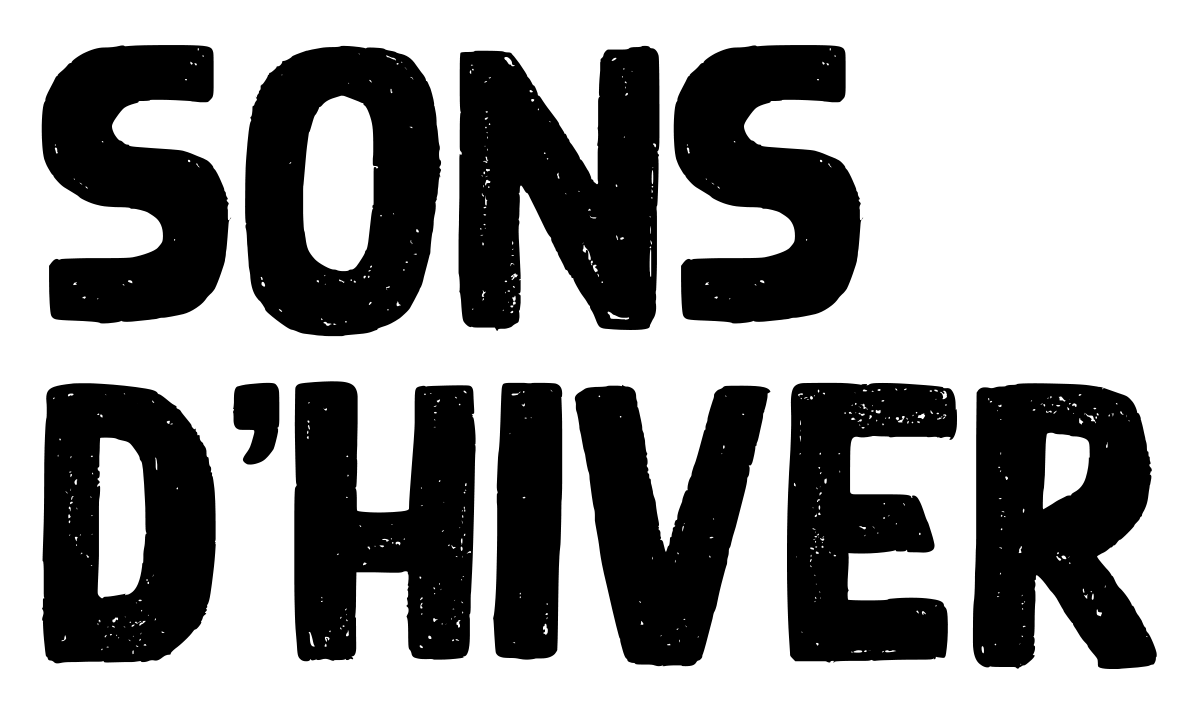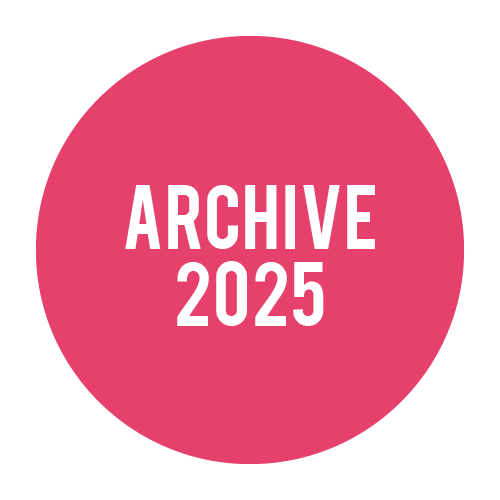Théâtre Jean-François Voguet • Fontenay-sous-Bois

DISCOBOLE ORCHESTRA invite CHRISTINE SALEM
Christine Salem • voix, kayamb
Stéphane Hoareau • guitare, direction
Théo Girard • contrebasse, direction
Ianik Tallet • batterie
Antoine Berjeaut, Hector Léna-Schroll, Jérôme Fouquet, Achille Alvarado • trompettes
Cléa Torales, Florence Kraus, Juliette Marçais, Lisa Cat-Berro • saxophones
Judith Wekstein, Morgane Pommier • trombones basse
Thibault du Cheyron, Gabrielle Rachel • trombones
Dans le sillage d’un album paru à l’automne 2024, le Discobole Orchestra déploie aujourd’hui ses chansons XXL sur scène autour de Christine Salem, reine du maloya pour qui elles ont été composées. Imaginé par Théo Girard et Stéphane Hoareau, déjà à la manœuvre avec le groupe Trans Kabar et sa fusion entre maloya, rock et free jazz, le collectif de seize musiciens et musiciennes transcende les frontières stylistiques pour dessiner un espace neuf, où l’improvisation a toute sa place. Entre les pulsations de la batterie et du kayamb, les motifs de guitare ciselée et la voix somptueuse de Christine Salem, les cuivres s’engouffrent en nombres pour une transe chaloupée, chaleureuse et humaniste.
Avec le soutien de la DRAC Ile de France, de la Spedidam et du théâtre Berthelot Jean-Guerrin, Montreuil, de la Route du Jazz Département 77
ENGLISH VERSION : In the wake of an album released in autumn 2024, Discobole Orchestra is now spreading the extra-large wings of its songs live around Christine Salem, the queen of Maloya for whom they were composed. This 16-musician collective was put together by Théo Girard and Stéphane Hoareau, veterans of the group Trans Kabar and its eminently danceable fusion of maloya, rock, and free jazz. Discobole transcends stylistic boundaries to explore new territory where improvisation is allowed free range. Between the throbbing of the drums and the kayamb, the chiseled guitar licks, and the splendid vocals by Christine Salem, the brasses gladly leap in. The resulting sound is a hot and humanistic, a trance-like frenzy of syncopation.
Kafé Gryé

Lagon Nwar
Marcel Balboné • chant, batterie, koundé
Quentin Biardeau • saxophone ténor, synthétiseurs
Valentin Ceccaldi • basse
Ann O’aro • chant
À l’origine de Lagon Nwar, il y a la rencontre entre deux co-fondateurs du Tricollectif orléanais, Quentin Biardeau et Valentin Ceccaldi, rompus aux projets pluridisciplinaires et transfrontaliers, le percussionniste et chanteur burkinabé Marcel Balboné et la chanteuse réunionnaise Ann O’aro. Aux premiers la composition de longs morceaux mélodieux et hypnotisants, à leurs complices l’écriture de textes portés par la voix claire d’Ann O’aro. Clavier, basse électrique, percussions et chœurs tissent un dense écheveau de sons issus du jazz, du maloya ou de la pop psychédélique, tandis que les mots jaillissent en créole, français, anglais, bissa ou moré. Un insolent vent de liberté souffle sur ces chansons à la poésie vivifiante.
Production : TRICOLLECTIF
Coproductions : Africolor, Jazzdor, Théâtre d’Orléans / Scène nationale. Avec le soutien de : Philippe Conrath / Accent Aigu Maison de la musique de Nanterre, scène conventionnée d’intérêt national, l’Adami, le CNM, la SPEDIDAM. Accueils en résidence : Le Kabardock – La Réunion, La Dynamo – Pantin, Château-Rouge – Annemasse.
Le TRICOLLECTIF est aidé par le Ministère de la culture/Direction régionale des affaires culturelles du Centre-Val de Loire et la Région Centre Val de Loire, au titre de l’aide aux ensembles conventionnés, et par la ville d’Orléans pour ses projets artistiques.
Avec le soutien de l’Onda – Office national de diffusion artistique
ENGLISH VERSION : The black lagoon, Lagon Nwar, originated in the city of Orléans with two co-founders of the Tricollectif, Quentin Biardeau and Valentin Ceccaldi. Enthusiastic about fusions and hybrids, they have joined forces with Marcel Balboné, a percussionnist-vocalist from Burkina Faso, and Anna O’aro, a singer from Réunion Island. Biardeau and Ceccaldi compose long, hypnotic, melodious pieces, while Ann O’aro lends her crystalline voice to lyrics she and Balboné write. Keyboards, electric bass, and back-up vocals weave a dense skein of sounds influenced by jazz, maloya, and psychedelic pop. The words that leap out are Creole, French, English, Bissa, and Mòoré. The invigorating poetry of these songs struts with a bold and brazen freedom.
![]() La Sonothèque, entretien transmédia avec Ann O’aro par Guillaume Malvoisin et PointBreak
La Sonothèque, entretien transmédia avec Ann O’aro par Guillaume Malvoisin et PointBreak
La Plateforme, multimedia du festival


